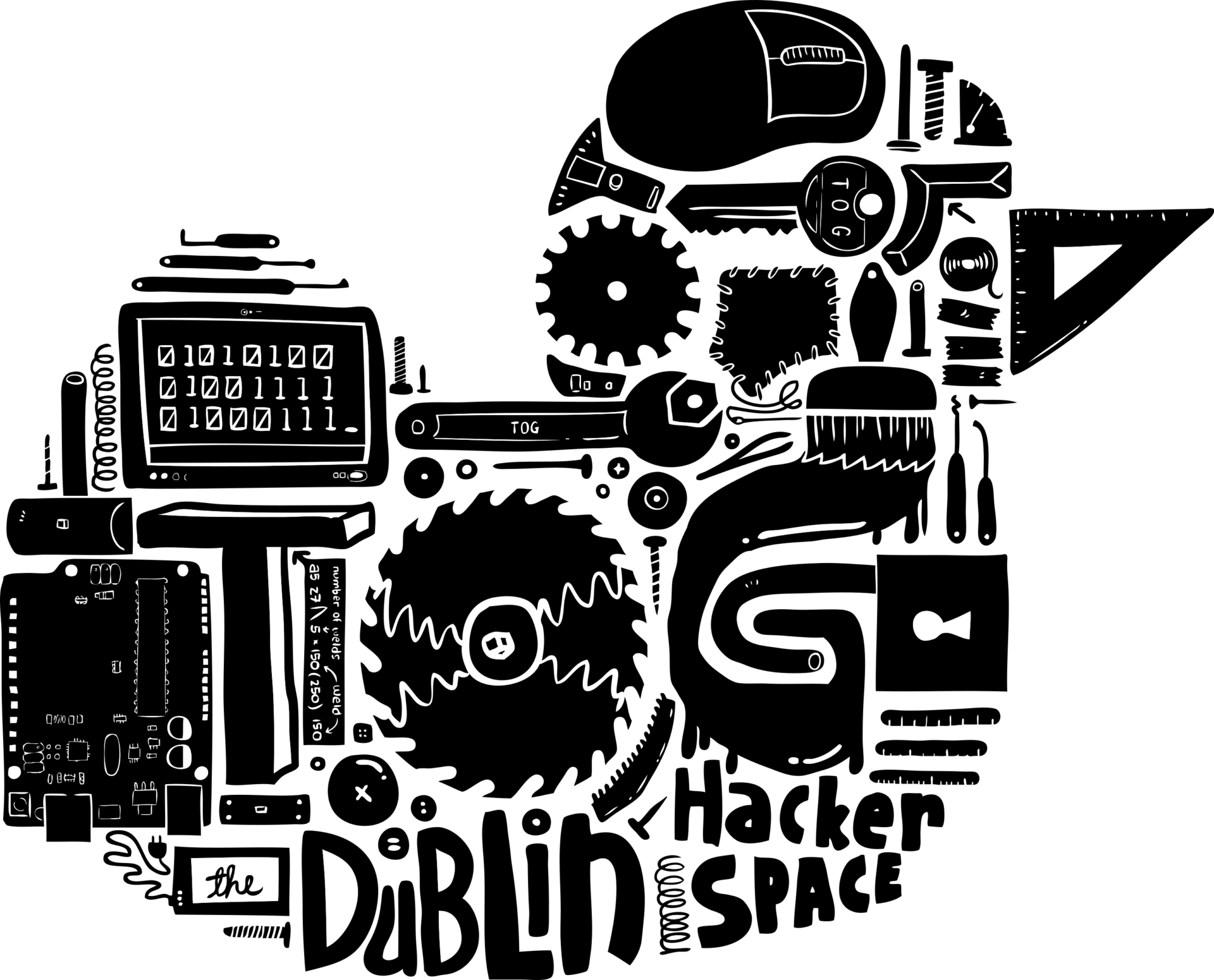So I’m just back from a 400-odd year space flight, which felt like a weekend, but actually took 270 years, depending on where you’re standing. Imagine the jetlag! Sunday was mostly taken up with the first recorded arts-based intergalactic mission in human history, also known as Starship Hack Circus. 
My involvement in the project started some months ago, with a trip to the utterly brilliant Hurdy Gurdy Radio Museum in Howth, Co. Dublin, and some research into early radio transmissions for some upcoming workshops. It was in Howth that I first learned of Fred Cummins and his Guzman Boxes. From Wikipedia:
“The Prix Guzman (Guzman Prize) was a 100,000 franc prize announced on December 17, 1900[1] by the French Académie des Sciences to “the person of whatever nation who will find the means within the next ten years of communicating with a star and of receiving a response.” It was sponsored by Clara Gouget Guzman in honor of her son Pierre. Pierre Guzman had been interested in the work of Camille Flammarion, the author of La planète Mars et ses conditions d’habitabilité (The Planet Mars and Its Conditions of Habitability, 1892). Communication with Mars was specifically exempted as many people believed that Mars was inhabited at the time and communication with that planet would not be a difficult enough challenge.[2] Nikola Tesla claimed in 1937 that he should receive the prize for “his discovery relating to the interstellar transmission of energy.”[3] The prize was awarded to the crew of Apollo 11 in 1969.
Cummins, a keen astronomer and radio enthusiast, had retired to Howth in the 1930s, where he built hundreds of basic radio kits to try to detect alien transmissions and claim the prize. Each used a helical resonator tuned to a specific narrow band of frequencies, in an attempt to pinpoint an ET signal. Ultimately, Cummins failed, but left behind a huge legacy of hundreds of beautifully crafted yet utterly useless ‘Guzman Boxes’.
Earlier this year, fellow Tog Dublin member Jeffrey Roe and I were gifted the shell of a Guzman Box from the Cummins estate, little more than a wooden cube with a helical resonator attached, to restore and develop for the Hack Circus voyage. We decided to flip the Guzman prize on its head – instead of looking for extra-terrestrial communications, we would examine the signals that have left earth, to wander indiscriminately through the galaxy, acting as unwitting human ambassadors. With the help of woodworker extraordinaire Javier Leite we were able to return the box to something of its former glory. Jeffrey worked on engineering and code, while I researched appropriate transmissions, ably abetted by Benjamin Schapiro in the States (thank you again Ben!).
The box plays the most historically significant transmissions from exoplanet exploration, catalogued by where in the galaxy that transmission is now reaching. For example, Reginald Fessenden’s Christmas Eve 1906 transmission of Handel’s Largo (now reaching the planet HD 37124c in the Taurus System – the furthest reach of human art), a moving recording of Allied troops landing in France, 1916 (just now reaching the first-discovered-and-closest rogue planet CFBDSIR2149-0403) to the fall of the Berlin Wall, transmitting to possibly our closest neighbour in the habitable ‘Goldilocks’ zone – Gliese 667cc. What must our neighbours think of us?
Because it’s Hack Circus however, and that means never taking *anything* for granted, Jeff and I decided we couldn’t count absolutely on human means of aural detection. In space no-one can hear you scream (or sing along to Ken Dodd’s 1965 classic Tears for that matter – just now reaching habitable exoplanet Gliese 163c), so we needed a means to transmit audio through the vacuum of space, and through whichever aural cavity alien physiology might have evolved. The safest bet was bone conduction, and a method ruthlessly stolen from Dave McKeown at Artekcircle earlier in the year – biting down on a copper rod attached to a motor, attached to an amp. Here’s a tweet of @metabrew, demonstrating technique –
Here’s @metabrew listening to a broadcast from the fall of the Berlin wall #starshiphackcircus pic.twitter.com/Kzkm1wMiuM — Linda Sandvik (@hyper_linda) September 14, 2014
And the Guzman Box itself:  The Guzman Box will be available to try at Tog Dublin on Culture night – this coming Friday 19th September, along with the Tachyonic Antitelephone , and a host of other art, craft, tech, and engineering projects from fellow members.
The Guzman Box will be available to try at Tog Dublin on Culture night – this coming Friday 19th September, along with the Tachyonic Antitelephone , and a host of other art, craft, tech, and engineering projects from fellow members.
